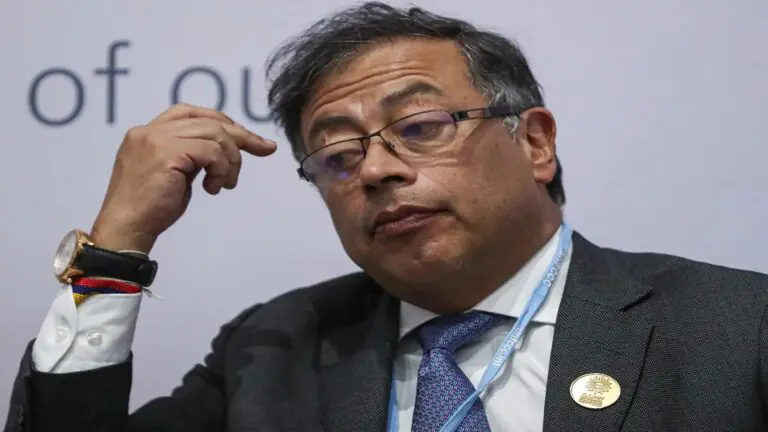
The Colombian Constitution stipulates that the electromagnetic spectrum is public and cannot be seized or alienated
Bogota, March 27 (RHC)-- Colombian President Gustavo Petro has denounced that he was the target of censorship and an attempted media and parliamentary coup to annul the popular vote, a coalition of public and private media outlets.
Gustavo Petro expressed his disagreement with the 'tutela action' admitted by the Council of State, which seeks to prevent cabinet meetings from being broadcast live during prime time on the nation's private and public television channels.
"This is good. "Informative pluralism and the right to the truth mandated by the Constitution are in jeopardy," Petro stated.
The president recalled that the Colombian Constitution states that the electromagnetic spectrum is public and cannot be seized or alienated. In this regard, the president asked "legal experts on the subject of informative pluralism and television to express their opinions on this process that is beginning, and which is worth studying nationally and internationally in depth."
Furthermore, Gustavo Petro questioned which rights are violated if the fundamental guarantees available to citizens are explained on television, and he recalled the citizens' right to information.
"What fundamental right is violated if the president speaks on television? The commercialization of privatized channels. That is not a fundamental right. Is there a fundamental right for a citizen not to know about their country? That doesn't exist. "He who doesn't want to see, doesn't see, no one forces him to," Petro emphasized.
He also requested clarification from the networks Caracol, RCN, and Canal UNO, and questioned the existence of "a tutela (a legal action) against the president for expressing himself" on the electromagnetic spectrum.
"Was the electromagnetic spectrum privatized in Colombia, against the Constitution, without us realizing it?" the Colombian president questioned.
Gustavo Petro also recalled the constitutional right to informational pluralism and truthfulness, and warned about the expropriation of the national electromagnetic spectrum by private communication channels.
"On the electromagnetic spectrum, property of the nation, only the largest capitalists, who are the owners of the private channels, can express themselves, contrary to the constitutional right to informational pluralism and truthfulness. Do private channels then represent the expropriation of the national electromagnetic spectrum?" Petro emphasized.
The president requested that Caracol, a state contractor, correct the National Electoral Council's (CNE) statement that Petro exceeded campaign spending limits due to a payment to the channel, when in fact, Caracol's accounting system erred in double-billing the same amount.

